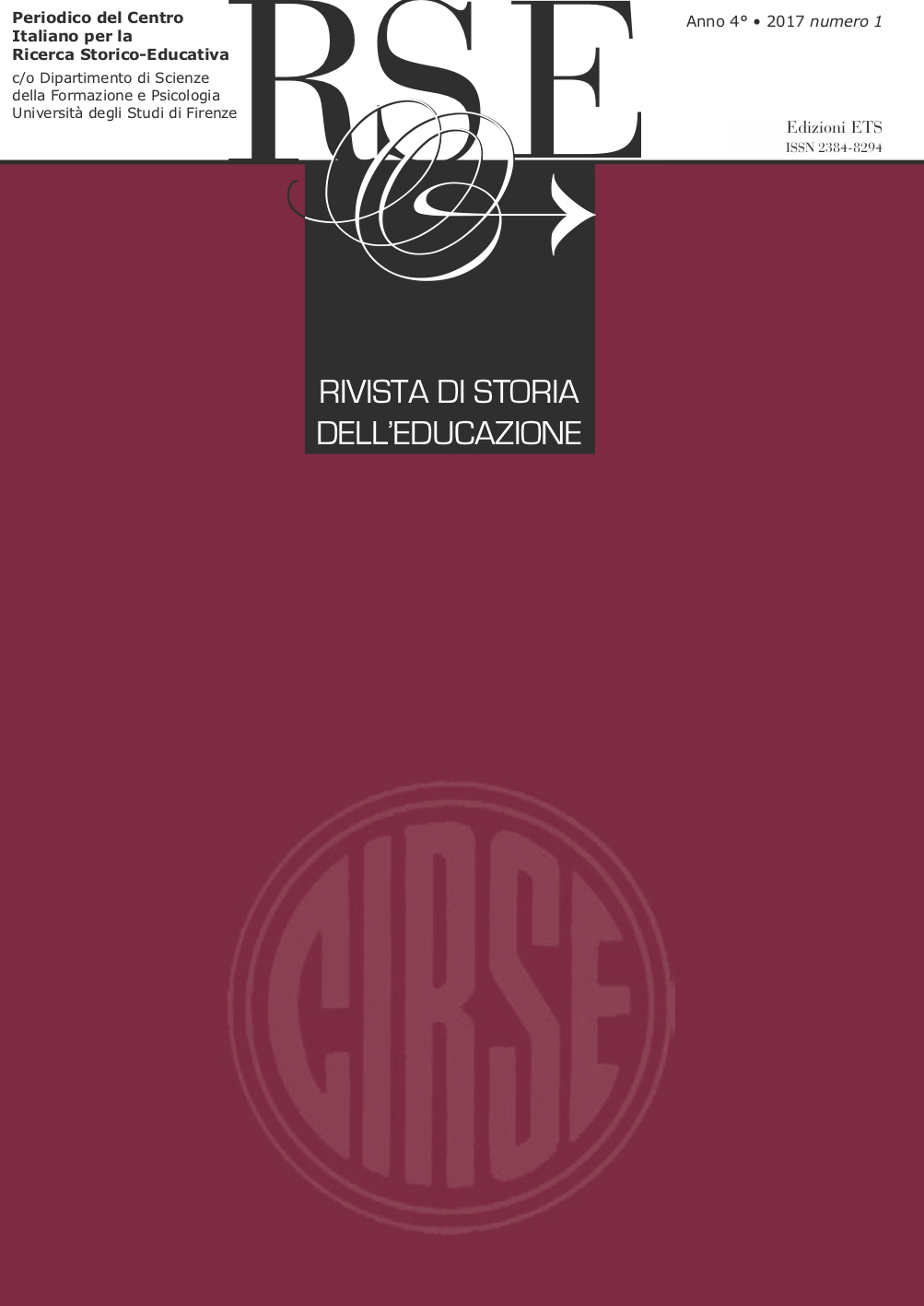Cherchez la femme. The gendered body of the Greek and Italian female schoolteachers as a case study (19th -early 20th centuries)
Published 2017-06-29
Keywords
- Nineteenth to early- Twentieth centuries education;,
- Greek and Italian female schoolteachers;,
- Feminism;
How to Cite
Abstract
Schooling has always played a significant role for people’s invigoration and enlightenment. Greece gained its freedom from the four-century Ottoman rule with the 1821 Greek Revolution for Independence and shaped itself as a free state in 1832. With the Italian Unification (Risorgimento), the country also became a single state and formed the Kingdom of Italy in 1861. The 19th - century discourse on women’s schooling in Greece was part of a more general ideology traced not only on the Greek Orthodox beliefs and on the national aspirations, but also on debated gender inequity and class discrimination. Likewise, in Italy during the same period, the question on education was a recurrent issue seeking to build a uniformity in its schooling system instead of being fragmented in various organizational types that existed during the period before the unification. The appearance of female elementary schoolteachers was a turning -point for women’s employment in both countries as the teachers’ profession opened new avenues for their emancipation and for obtaining civic rights. The purpose of the paper is to study the gendered body of the 19th to early 20th centuries- Greek and Italian female schoolteachers as a whole, and to explore the quest for an organized cycle of studies. Moreover, it seeks to compare the curricula of the Normal schools, as well as to study the social context within which women-teachers worked in the two countries, especially in the countryside.

